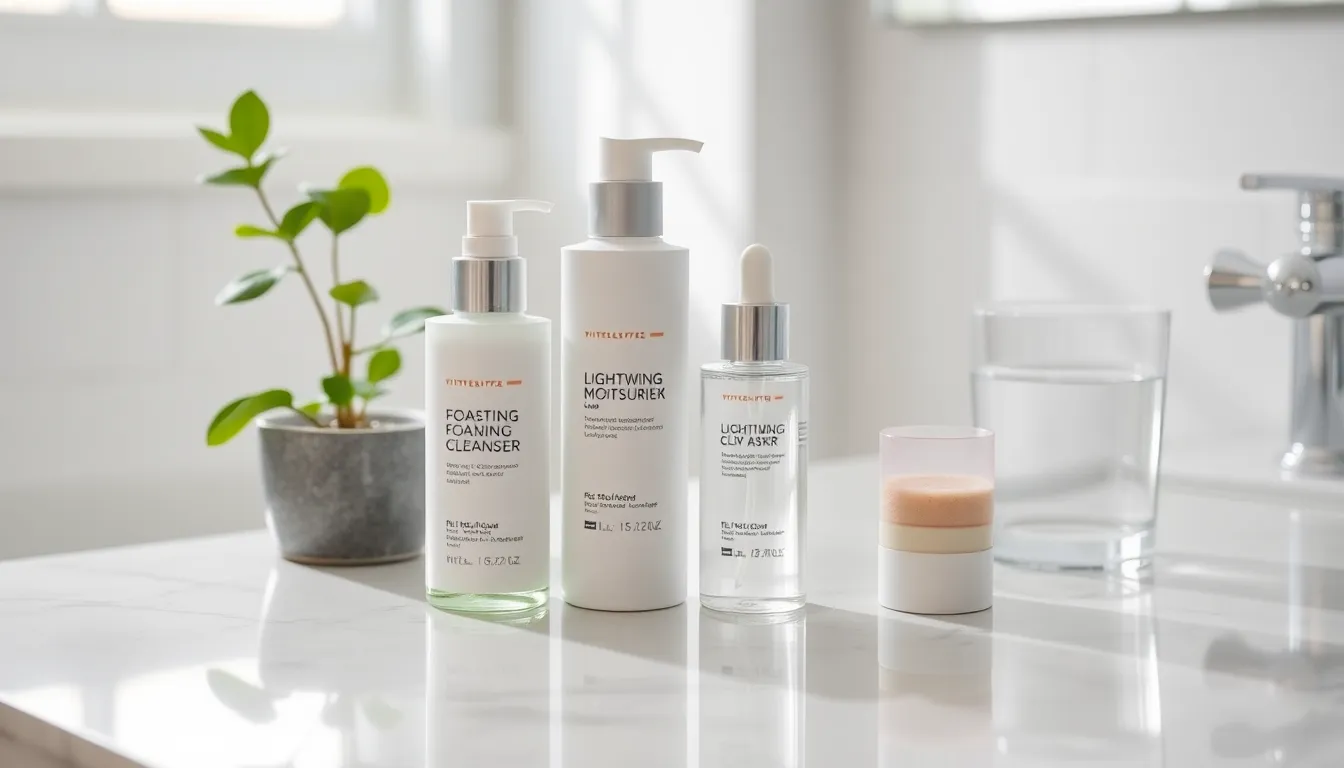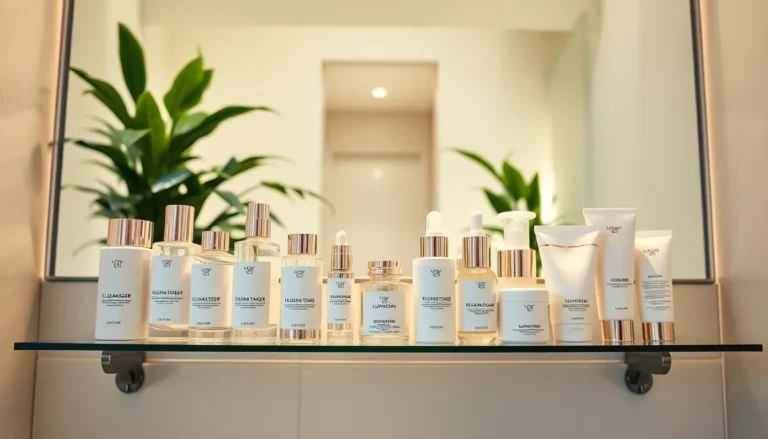Table of Contents
ToggleOily skin, the nemesis of many skincare enthusiasts, can feel like a slippery slope, pun intended. Whether you’re raining down oil like a slipped disco ball or just trying to tame that shine, understanding the right skincare routine is key to a glowing complexion. It’s not just about dousing your face in products that promise to soak up the excess: it’s a fine dance of cleansing, moisturizing, toning, and protecting without tipping the scales back to grease city. Buckle up: let’s jump into the essential skincare routines for oily skin that won’t leave you shining like a beacon.
Understanding Oily Skin

Oily skin arises when sebaceous glands overproduce sebum, the natural oil meant to protect the skin. This can lead to a shiny complexion, enlarged pores, and a tendency toward acne. Understanding the nature of oily skin helps in tailoring the perfect skincare routine. It thrives on balance, too little moisture might trigger more oil, while too much can overwhelm the skin. Hence, a skincare regimen specifically addressing these quirks unearths the true potential for healthy, radiant skin.
Common Causes Of Oily Skin
Several factors contribute to oily skin. First, genetics plays a significant role: if your parents had oily skin, chances are you may follow suit. Hormonal fluctuations, often seen during puberty or menstrual cycles, can turn oil production into overdrive. Also, diet is another culprit. High sugar and processed foods can increase sebum output, and let’s not forget the environment, hot and humid weather can make oily skin feel more like a slip-and-slide. Stress, too, can lead to changes in hormones that exacerbate oiliness, leading individuals into a never-ending cycle of skincare combat.
Essential Steps In An Oily Skin Routine
Establishing an effective skincare routine for oily skin is crucial. Here are the essential steps:
1. Cleansing: The Foundation Of Skincare
A gentle, foaming cleanser works wonders by removing excess oil and impurities without stripping the skin of its essential moisture. Look for ingredients like salicylic acid, which can penetrate pores and help prevent breakouts. Cleansing morning and night ensures a fresh canvas.
2. Exfoliation: Removing Dead Skin Cells
Exfoliating 1-2 times a week helps slough off dead skin cells that can clog pores. Consider products with alpha-hydroxy acids (AHAs) or beta-hydroxy acids (BHAs) that lift away debris without harsh scrubbing.
3. Toning: Balancing The Skin’s pH
After cleansing, applying a toner can deliver an extra shot of hydration while helping to balance the pH levels. Opt for a formula with witch hazel or tea tree oil to target oiliness and tighten pores.
4. Moisturizing: Hydration Without Overloading
Even though the oiliness, moisturizing remains essential. Lightweight, oil-free moisturizers hydrate without adding extra shine. Gel-based formulas are particularly beneficial, offering hydration while maintaining a matte finish.
5. Sunscreen: Protecting Oily Skin
Sun protection should never be skipped, even if your skin seems perpetually shiny. A matte-finish, oil-free sunscreen protects from UV rays without adding to the oiliness, paving the way for flawless skin.
Recommended Products For Oily Skin
When searching for products to complement an oily skin routine, it’s essential to choose those that actively address oiliness without aggravating it. Here are some standout recommendations:
- Cleansers: Look for salicylic acid cleansers like Neutrogena Oil-Free Acne Wash.
- Exfoliants: Consider Paula’s Choice BHA Liquid Exfoliant for a gentle yet effective option.
- Toners: Thayers Witch Hazel Toner offers a soothing, alcohol-free formula.
- Moisturizers: La Roche-Posay Effaclar Mat provides a shine-free finish ideal for oily skin.
- Sunscreens: EltaMD UV Clear Broad-Spectrum SPF offers excellent protection while being oil-free and lightweight.
Lifestyle Habits To Support Oily Skin Care
Beyond products, lifestyle choices significantly influence oily skin health. Regular exercise boosts circulation and promotes overall skin health, but don’t forget to cleanse afterward. A balanced diet rich in fruits, vegetables, and whole grains supports skin vitality. Staying hydrated is equally crucial: water helps flush out toxins, reducing oiliness. Also, managing stress through mindfulness practices or hobbies can alleviate hormonal fluctuations that contribute to oil production. Finally, always maintain clean skincare tools and consistently change pillowcases to minimize acne-triggering bacteria.




